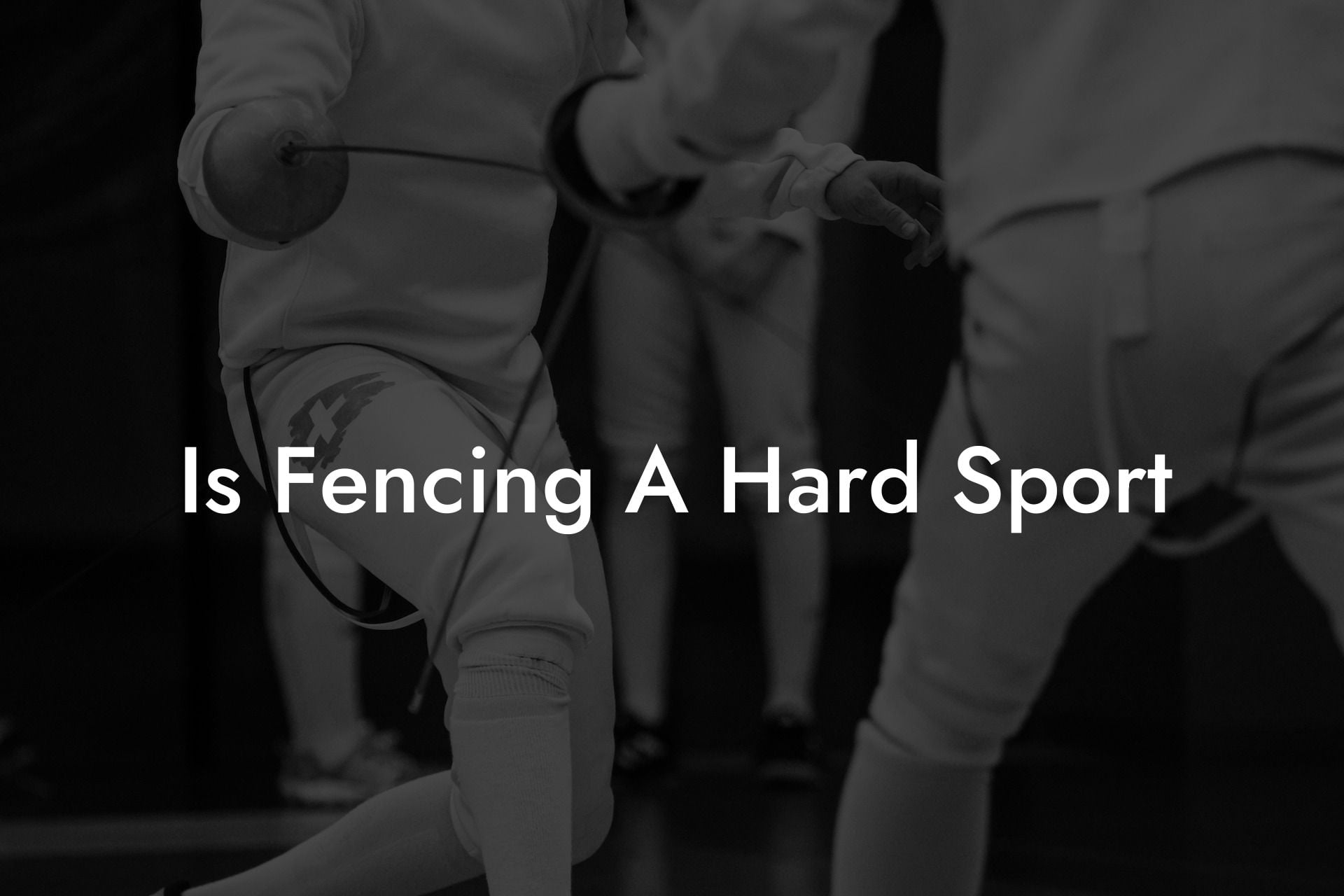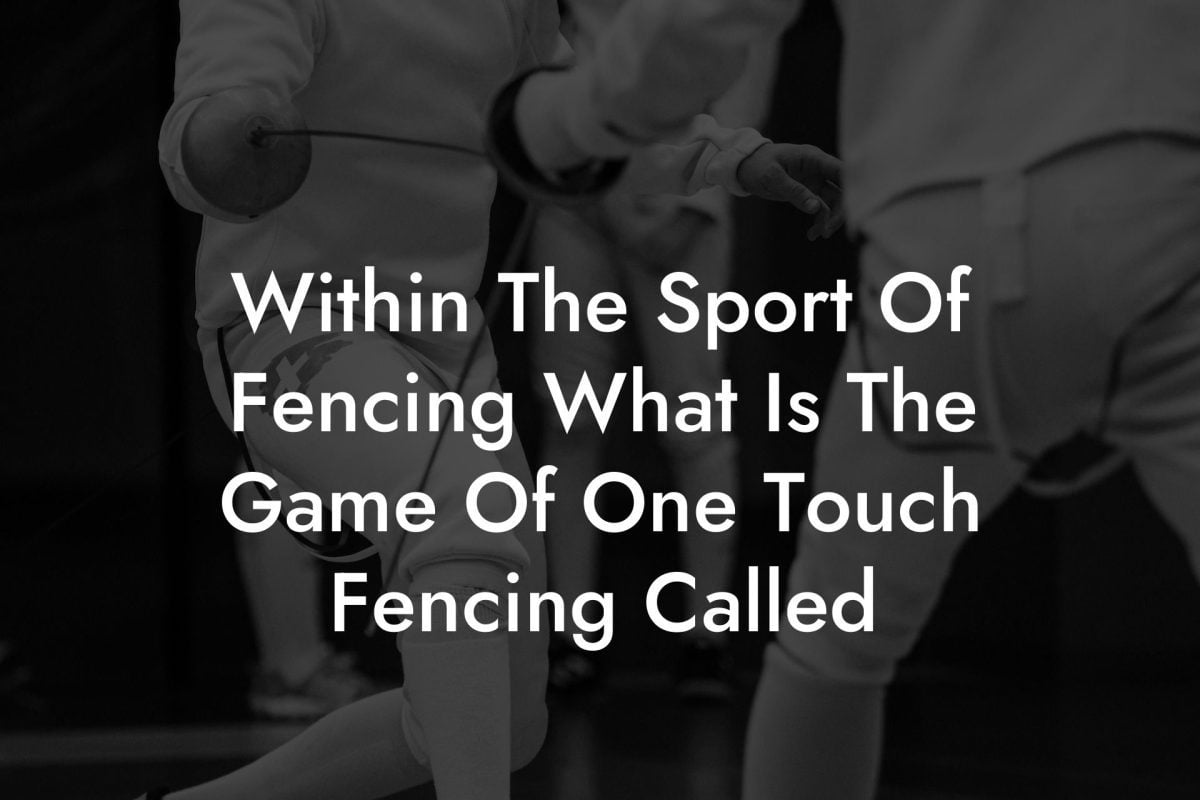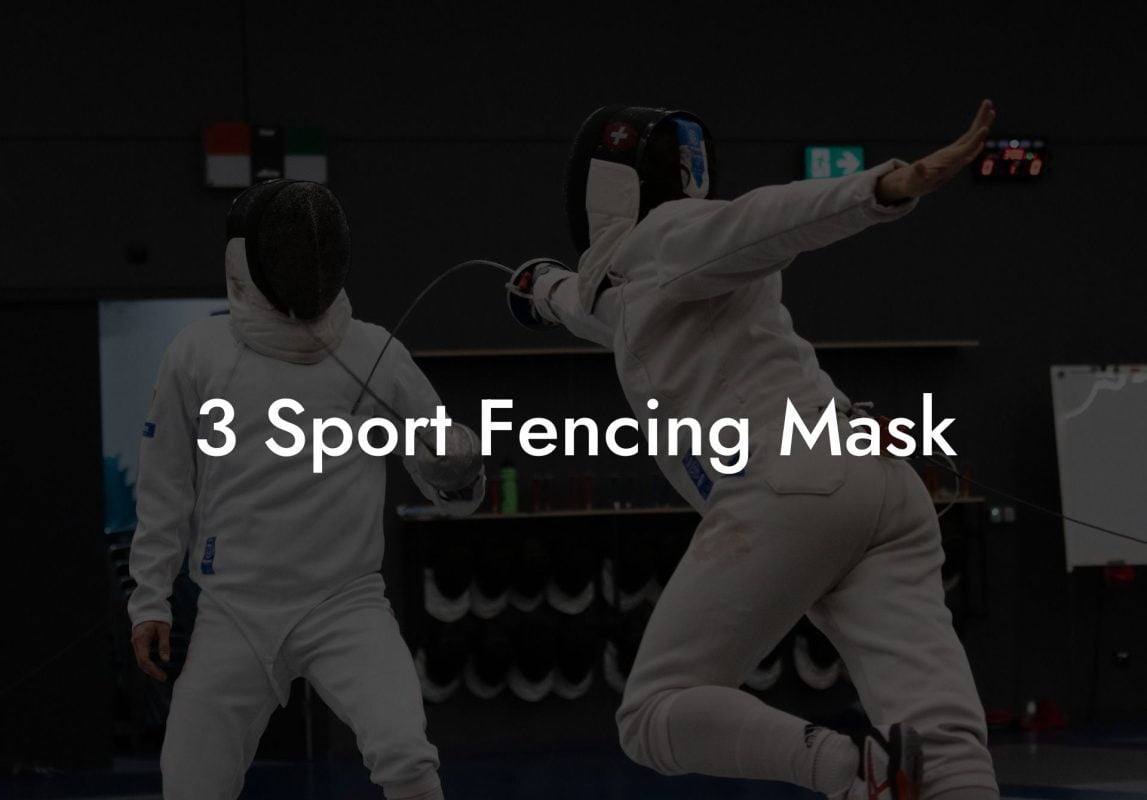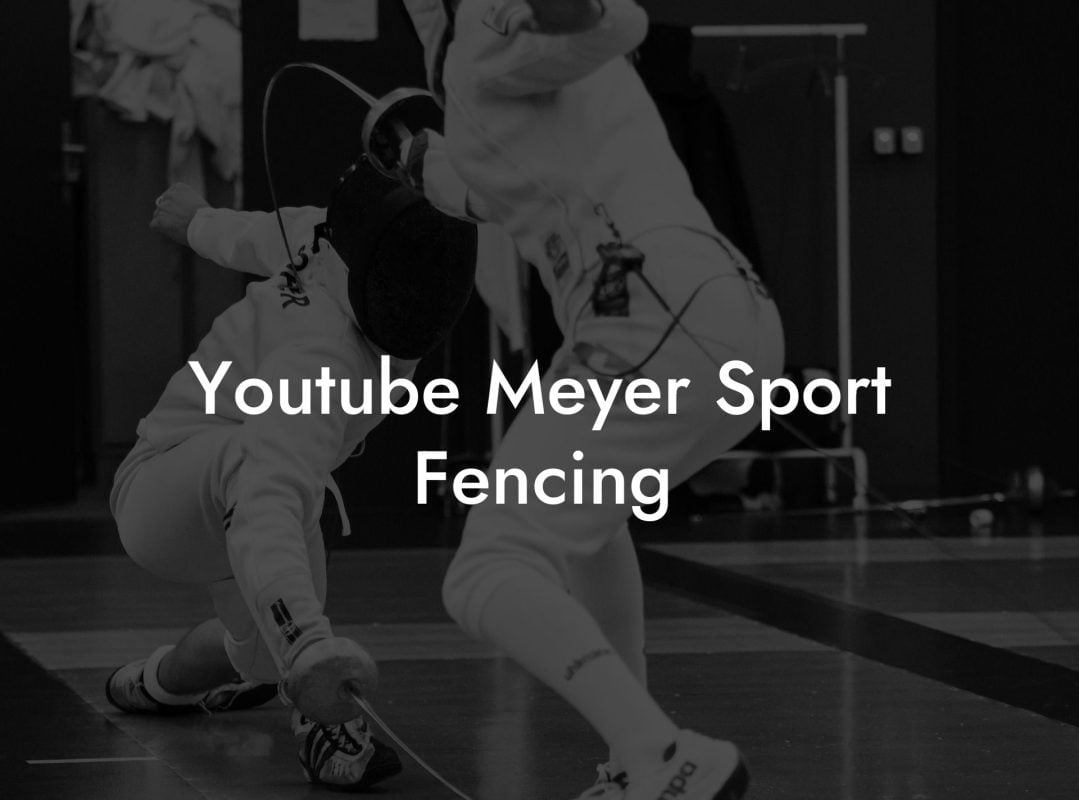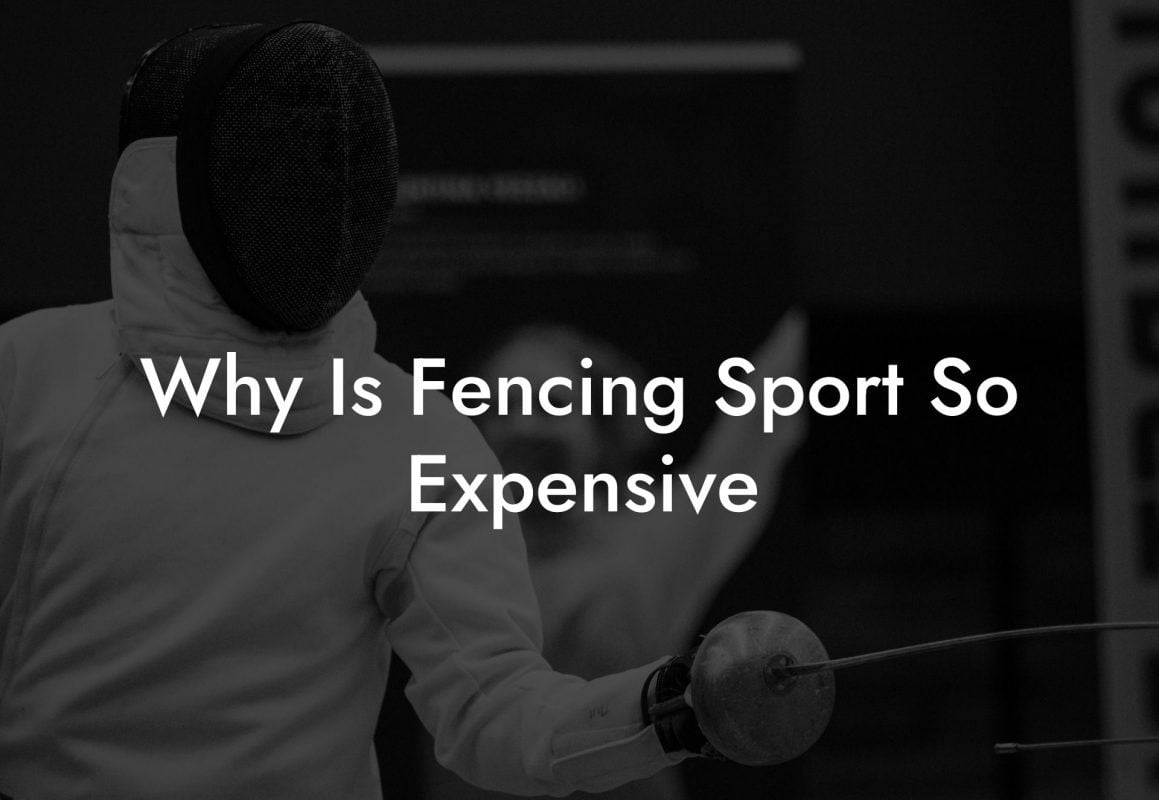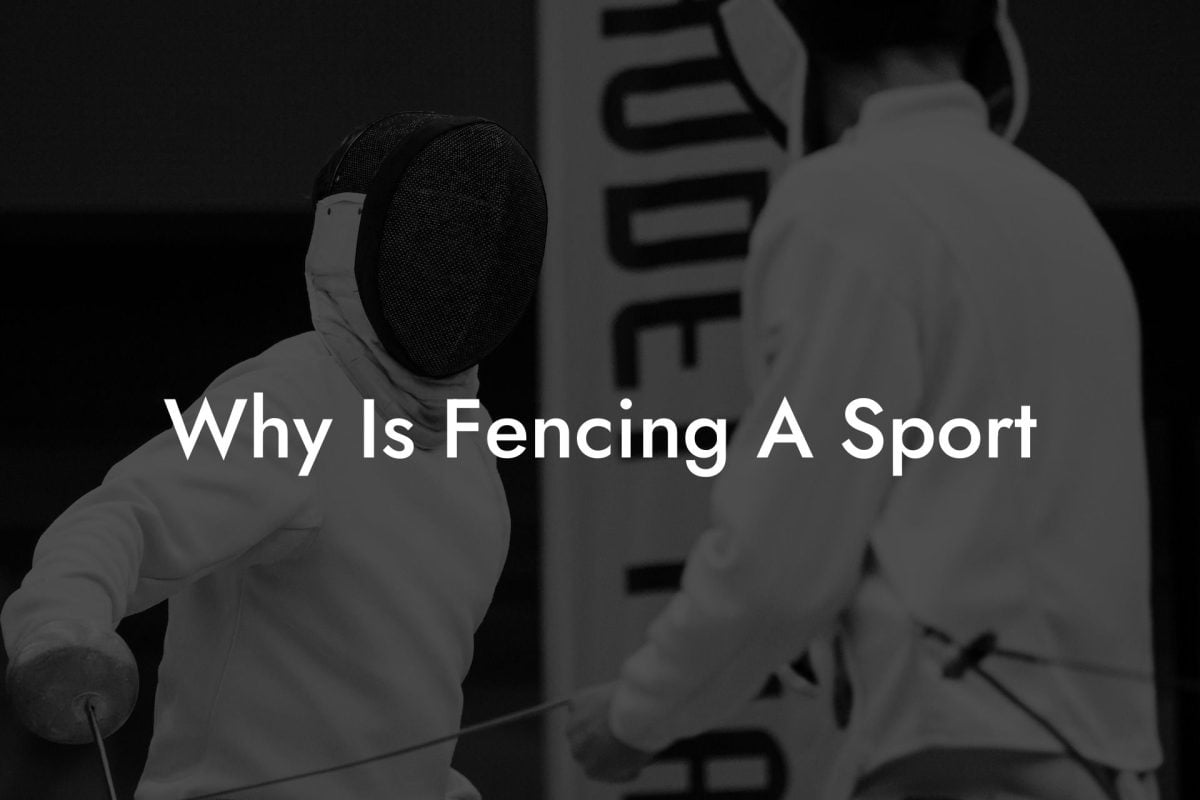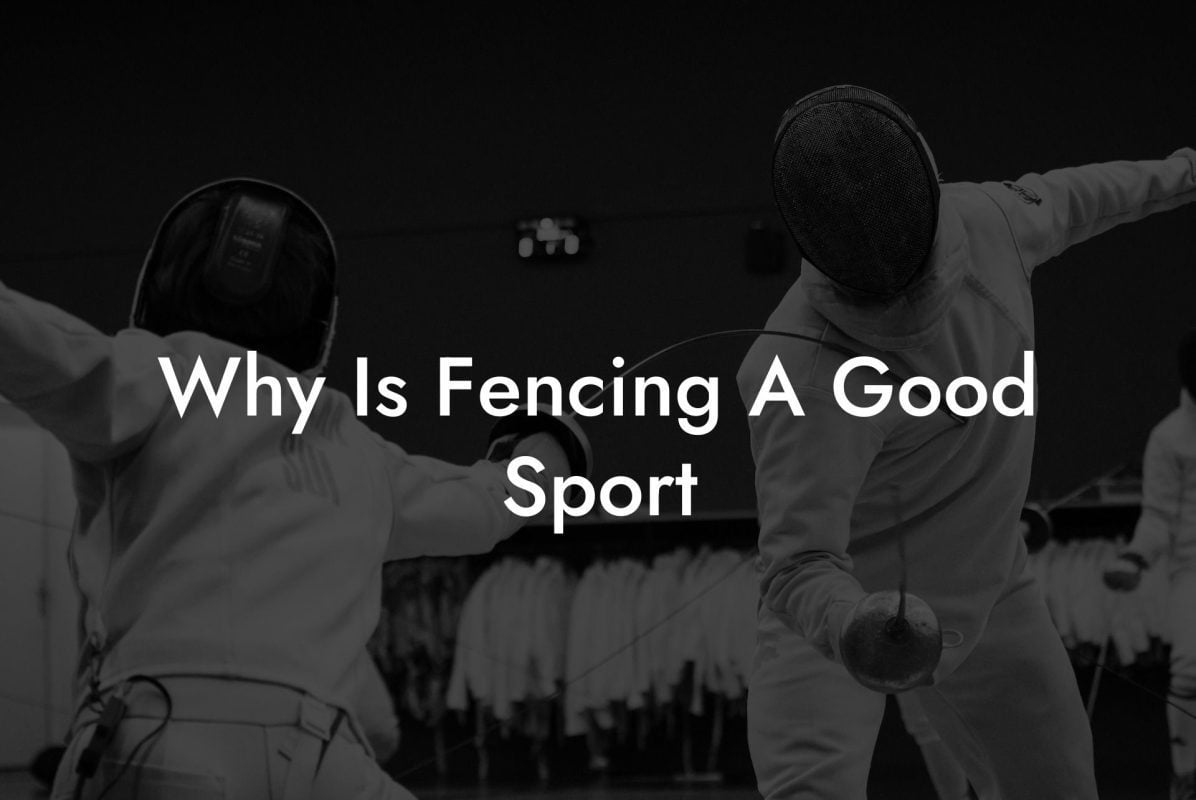Are you considering picking up fencing as a hobby or competitive sport, but unsure about its level of difficulty? This age-old activity has a unique charm and appeals to many for its blend of physical and mental challenges. In this article, we delve into the intricacies of fencing and discuss key aspects that make it a one-of-a-kind sport, exploring whether it's particularly hard to master.
Is Fencing A Hard Sport Table of Contents
Understanding Fencing Basics
Fencing consists of three major disciplines: foil, épée, and sabre. Each discipline has its own set of rules and characteristics that dictate how points are scored. Here's a brief overview:
- Foil: A lightweight sword used for thrusting attacks. Points are awarded only when the tip of the blade lands on the opponent's torso or back.
- Épée: A heavier sword, similar to foil, but points can be scored anywhere on the opponent's body.
- Sabre: A light, cutting weapon with a curved blade. Points can be scored with both the edge and the tip of the sword, targeting only the opponent's upper body.
Physical Challenges
Fencing demands a strong combination of athleticism, agility, and coordination. While it may seem intimidating at first, the physical requirements can be met through training and practice. Key physical skills required in fencing include:
- Leg strength: Fencers rely heavily on their leg muscles for lunges, quick retreats, and maintaining balance.
- Cardiovascular endurance: The intense footwork and explosive movements require a good deal of stamina.
- Hand-eye coordination: Precision is crucial when it comes to striking your opponent and defending yourself.
- Reflexes: Fencers need to quickly react to their opponent's actions and adapt their strategy.
Mental Challenges
Often referred to as "physical chess," fencing also requires a strong mental game. Fencers must master strategy, tactics, and adaptability to outsmart their opponents. Key mental aspects in fencing include:
- Concentration: Fencers need to maintain focus and avoid distractions when on the piste.
- Adaptability: Being able to read and react to changing situations is a pivotal skill in fencing.
- Decision making: A successful fencer must quickly analyze and decide when to attack, defend, or feint.
Is Fencing A Hard Sport Example:
Suppose you're a beginner fencer in your first foil class. Initially, you may find it difficult to maintain proper form while lunging, or accurately hit your opponent's target area. However, as you engage with your coach and participate in drills, your muscle memory will develop, and the movements will become more familiar. Before you know it, you'll start to combine your physical and mental skills, anticipating your opponent's actions and reacting accordingly.
There's no denying that fencing is a challenging sport. It's physically demanding, mentally engaging, and requires a constant drive to improve. However, the same can be said for many other activities. With dedicated practice, commitment, and passion, you can overcome the hurdles and excel at the art of fencing.
So, is fencing a hard sport? Yes and no. The initial learning curve can be steep, but the satisfaction of growth and mastery is well worth the effort. We encourage you to give it a try and experience the thrill of fencing for yourself. Check out our other guides at Anchorage Fencing Club for more insights and tips on this fantastic sport. And, if you found this article helpful, don't forget to share it with friends and fellow enthusiasts!

